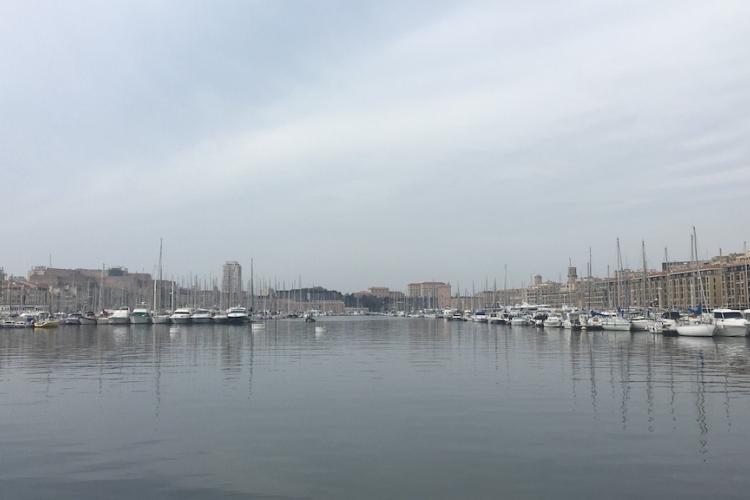How Fishers Manage Their Commons in Marseille: Private Governance and Its Limits
Dr Florian Grisel is an Associate Professor of Socio-Legal Studies at the University of Oxford Centre for Socio-Legal Studies.
Posted:
Time to read:
One prominent stream of scholarship has famously argued that systems of private governance (also called “private orders”) are better equipped than the law to manage various issues, such as the settlement of property disputes (Ellickson), the governance of international trade (Bernstein) or the management of common resources (Ostrom). Put succinctly, the argument of scholars working within the strictures of this scholarship runs as follows: private orders provide mechanisms that are more flexible, cheaper and more responsive to local needs than legal systems. Of particular importance for these mechanisms are the strong social norms in which systems of private governance are usually embedded. Scholars of private governance share a utilitarian philosophy, based on the assumptions that individuals act rationally and that their long-term interactions are conducive to greater social welfare under specific conditions. Paradoxically, what this social theory of the long term overlooks is precisely the long term itself – that is, the empirical observation of social interactions over extended periods of time, not just the theoretical analysis of the long term as a condition for social welfare.

The study at the core of my book, The Limits of Private Governance: Norms and Rules in a Mediterranean Fishery (Hart, 2021), seeks to improve our understanding of private orders by casting light on the ways in which they develop over the long term. In order to do so, the book focuses on the case of a medieval organisation, the Prud’homie de pêche, which the fishers of Marseille have maintained from its creation in the early fifteenth century down to the present day. Since 1431, the fishers of Marseille have elected representatives to this organisation and have given these representatives broad powers to issue rules, resolve disputes and police a fishery that extends over twenty miles of coastline. Luckily for researchers, the Prud’homie de pêche has kept very rich documentation that is disseminated across various archives and that makes it possible to track the development of this system of private governance over the very long term. Based on this documentation –supplemented by ethnographic interviews – the book analyses the evolution of the Prud’homie de pêche and some of the challenges that it has faced in its six centuries of existence.
The starting point of the analysis is the observation that – contrary to the assumption according to which individuals in private orders cherish the informality provided by social norms – the fishers of Marseille have built a micro state that produces and applies rules. The emergence of this organisation raises the following paradox: why did the fishers create a formal entity when theories of private governance teach us that rational behaviour guides individuals away from legal structures and towards reliance on social norms? The answer, found in the empirical records, reveals a level of complexity that theories of private governance do not fully account for.
The fishers of Marseille created the Prud’homie de pêche in 1431 in order to give concrete content to norms that were otherwise too broad to be operational. For instance, multiple references to a norm of equality appear in the archival records. In accordance with this norm, the fishers of Marseille have been particularly attached to sharing the resources of their fishery and coordinating their fishing activities. However, the application of this egalitarian norm led to certain practical issues. For instance, the fishing of tuna created important operational constraints in the late Middle Ages, arising from the use of numerous fishing crews, boats and nets to encircle schools of tuna and haul them up to the surface. While the egalitarian norm commanded that the catch be divided equally, the inequalities among crews of fishers led to difficulties, for instance, when an impoverished crew worked shorthanded or used damaged or undersized nets (an inequality that resulted in a global loss). The fishers specifically created the Prud’homie de pêche in order to give practical meaning to the open-ended norms to which they otherwise adhered. In the case of tuna fishing, the Prud’homie de pêche could thus rule on the types of net and the number of crew members permitted to be involved in this type of fishing.
The book then turns to the analysis of a series of events that the fishers of Marseilles have faced over the centuries. These events raised major challenges for the Prud’homie de pêche, for instance, when new techniques increased the individual capacity for fishing extraction or when groups of fishers migrated from neighbouring countries such as Italy or Spain. What the empirical record reveals is the extreme resilience of the fishers’ social norms, as well as the ways in which these norms framed and limited the Prud’homie de pêche’s action. The case study of the Prud’homie de pêche further suggests that the imaginative force and capacity for change displayed by private orders are impeded by their own social norms.
The case of the Prud’homie de pêche therefore highlights two features of social norms that sit poorly with the optimistic accounts found in the literature on private governance. In this case, the social norms of fishers were too open-ended to provide concrete solutions to the problems faced by fishers in their daily activities, thus requiring the Prud’homie de pêche to develop rules to complement these norms. In addition, the rigidity of social norms prevented the Prud’homie de pêche from fully accommodating social changes, thus limiting its ability to respond to these changes. More generally, the book aims to complement the optimistic analysis of private governance that have attracted considerable attention in the past few decades and open avenues for future research.

--
How to cite this blogpost (Harvard style):
Grisel, F. (2022) How Fishers Manage Their Commons in Marseille: Private Governance and Its Limits. Available at: https://www.law.ox.ac.uk/research-and-subject-groups/property-law/blog/2022/03/how-fishers-manage-their-commons-marseille (Accessed [date])
Share:
